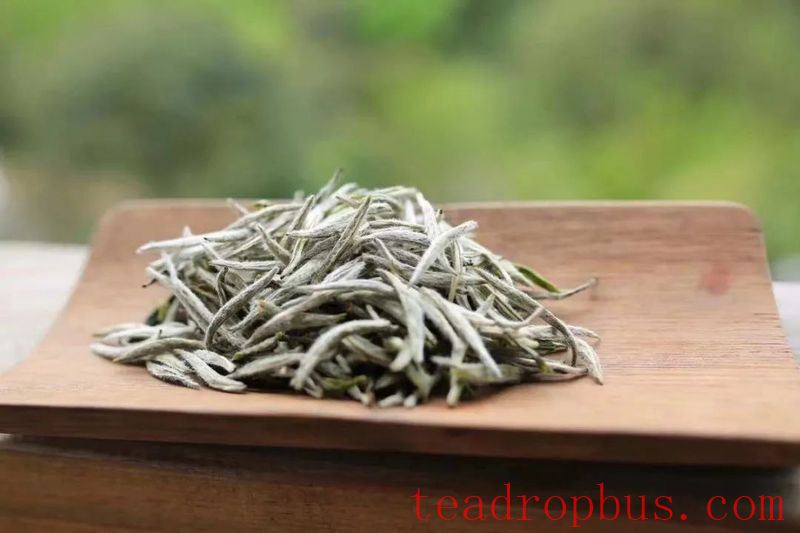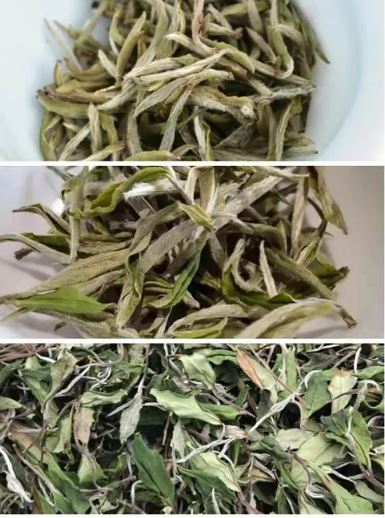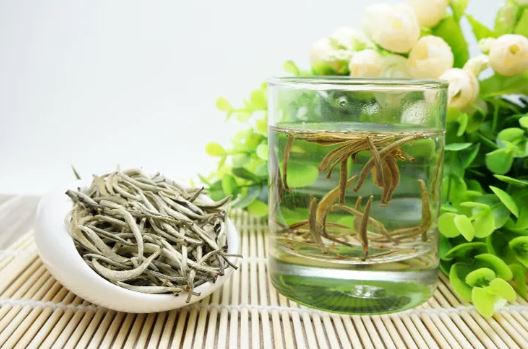White Tea, a type of tea like a raw gemstone, stands out in the world of tea with its natural and primitive processing methods and unique taste. When you gently pour yourself a Cup of white tea, it's as if you're initiating a dialogue with nature.

Among various types of tea, white tea is characterized by a fresh sweetness. This sweetness isn't cloying but rather refreshing and sweet like a gentle breeze through a mountain forest. Those who have tasted white tea are often captivated by its unique “sweetness,” whether it's the “fresh sweetness” of young white teas or the “rich sweetness” of aged white teas, both leaving an unforgettable impression on the palate.
To explore why white tea tastes sweeter, we uncover many mysteries. During the withering process of white tea, enzyme activity increases, promoting the hydrolysis of proteins in the leaves and generating amino acids that impart a fresh and sweet flavor. The content of amino acids in white tea is extremely high, several times more than other types of tea, which not only gives white tea its distinctive taste but also significantly affects its aroma, color, and liquor color. Amino acids give the tea liquor a pleasant freshness, as if nature were dancing on the tip of your tongue.
At the same time, sugars in white tea play a significant role. The presence of soluble sugars adds depth and viscosity to the taste of white tea, presenting a sensation of “sweetness” that is comforting. The control of withering time during the processing of white tea helps increase the content of soluble sugars, further enhancing the appeal of its taste.
The taste of white tea is as simple yet profound as its processing method. Generally, white tea is classified into Silver Needle, White Peony, and Shoumei based on the standards of leaf tenderness. Each has its own unique flavor characteristics.

Silver Needle, like a fairy among teas, is renowned for its fresh and fragrant aroma. Tasting a fine Silver Needle is akin to strolling through a morning forest, breathing in fresh air and pure natural scents. Its pure and unadulterated fragrance, clear and bright liquor, fresh and tender taste, and the abstract yet captivating downy aroma all enchant the senses. Its taste is light yet full-bodied, with a unique thickness in the liquor, smooth like rice gruel, providing a delightful swallowing sensation.
White Peony exhibits a rich and sweet character. Its aroma is fresh and pure, with a hint of downy fragrance, and the taste is rich and sweet. The liquor also possesses a thick and creamy texture. The perfect combination of bud and leaf makes its taste fuller and richer, presenting diverse flavors such as floral and melon-like aromas, like a feast for the senses. The regional characteristics of white tea are vividly embodied in White Peony, with differences in altitude, micro-environments, and processing methods across different origins contributing to a wide range of flavors.
Shoumei emphasizes a delicate and sweet taste. The mature leaves and stems give it a unique sweetness. Compared to the refined smoothness of Silver Needle and White Peony, the liquor of Shoumei is somewhat milder. The natural processing method of white tea means it can be stored for a long time, and over time, the flavor of Shoumei becomes even more aromatic and flavorful.

If you cannot accurately discern these flavors, there is a simple method to consider: smell its aroma. If there is a scent reminiscent of Tofu pudding, then such white tea is typically of high quality.
White tea is not just a beverage; it is also a way of life. It carries the gifts of nature and the traces of time. Amidst the hustle and bustle of daily life, brewing a cup of white tea allows you to immerse yourself in a tranquil atmosphere, feeling inner peace and serenity. Whether enjoyed alone or shared with friends, white tea brings a unique joy and satisfaction.
Let us step into the world of white tea together, savoring its simple yet profound flavors and experiencing the charm and power of nature. In a cup of white tea, find the essence of life, coexisting harmoniously with nature, and enjoy the rare beauty and tranquility it offers.